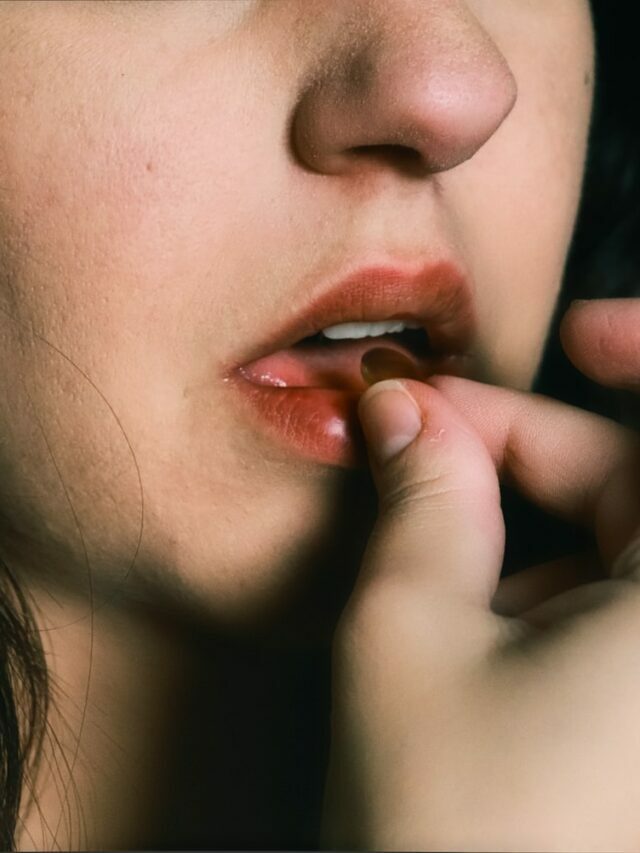Attention-deficit/hyperactivity disorder (ADHD) is a neurodevelopmental disorder that affects millions of children and adults worldwide. While medication and psychotherapy are the most commonly prescribed treatments, there is growing interest in integrative approaches that consider the whole person and leverage all available options to promote general health and wellness.
Integrative medicine for ADHD is a holistic approach that combines conventional treatments with complementary and alternative therapies, lifestyle changes, and stress-management skills to improve symptoms and enhance overall well-being. This article provides a comprehensive guide to integrative approaches for ADHD, including mind-body approaches, nutrition and supplements, and collaborative treatment approaches.
It also explores the latest research on the effectiveness of integrative therapies for ADHD and offers practical tips for individuals and families seeking to manage ADHD symptoms holistically. By taking a whole-person approach to ADHD treatment, we can empower individuals with ADHD to take an active role in their own care, promote self-awareness and self-care, and foster a sense of belonging in a community of like-minded individuals who share their struggles and experiences.
ADHD Overview
ADHD is a complex condition that affects various aspects of an individual’s mental, emotional, physical, spiritual, and social well-being. It is a neurodevelopmental disorder that manifests in childhood, but can persist into adulthood.
The symptoms of ADHD include hyperactivity, impulsivity, and inattention. ADHD can interfere with an individual’s academic, social, and occupational functioning.
While medication and psychotherapy are the most common treatments for ADHD, integrative medicine for ADHD aims to address symptoms and promote general health and wellness by considering the whole person and leveraging all available options.
Integrative medicine for ADHD takes a holistic approach that considers lifestyle modifications, stress management, and various complementary and alternative therapies. This approach recognizes that ADHD affects not only the mind, but the body and spirit as well, and seeks to improve the overall quality of life for individuals with ADHD.
Common Treatments
The recommended treatments for ADHD include medication and psychotherapy, as well as parent training and behavioral classroom interventions for children and adolescents.
Stimulant medications, such as methylphenidate and amphetamines, are the most effective and commonly used medications for ADHD. These medications work by increasing the levels of dopamine and norepinephrine in the brain, which helps improve attention and focus. However, they can have side effects such as decreased appetite, insomnia, and irritability.
In addition to medication, psychotherapy is often recommended to help individuals with ADHD develop coping skills and strategies to manage their symptoms. Cognitive-behavioral therapy (CBT) is a commonly used form of psychotherapy for ADHD, which helps individuals identify and change negative thought patterns and behaviors.
Parent training and behavioral classroom interventions are also important components of ADHD treatment for children and adolescents. These interventions aim to improve behavior and academic performance by teaching parents and teachers how to create structured and supportive environments, set clear expectations, and provide positive reinforcement.
Mind-Body Approaches
Mind-body approaches, such as mindfulness, self-compassion, exercise, and acupuncture, have been found to be helpful in managing symptoms of ADHD and promoting overall health and well-being.
Mindfulness, a type of meditation that involves paying attention to the present moment without judgment, has been shown to improve inattentive and hyperactive/impulsive symptoms, as well as selected measures of attention, emotion regulation, and executive functions.
Self-compassion, which involves treating oneself with kindness and understanding instead of self-criticism, is important for mental health and can help decrease the severity and impairment of ADHD’s core symptoms.

Exercise, particularly aerobic exercise, improves executive functions, attention, and behavioral symptoms in ADHD, while other types of mind-body movement, such as yoga or tai chi, can also be helpful for ADHD symptoms.
Acupuncture, which stimulates diverse points on the body to lower inattention and hyperactivity, has also been found to be effective in managing symptoms of ADHD.
In addition to these mind-body approaches, practicing regular sleep, adequate hydration, prioritized self-care, and avoidance of excessive alcohol and other substances can help manage ADHD symptoms.
Breathwork can counteract stress and change the body state, while eating whole grains, fruits, vegetables, lean proteins, fish, and nuts improves depressive symptoms and supports modulation of neurotransmitters.
The gut-brain connection is also important in ADHD treatment, as healthy gut flora can reduce anxiety and cortisol levels. Prebiotic and probiotic foods can support gut health, while supplements and herbs can be used to treat ADHD symptoms or support general mental and physical health.
Integrative providers should understand conventional mental health and work collaboratively with other clinicians to provide the best care for individuals with ADHD.
Nutrition and Supplements
Nutrition and supplementation play an important role in the treatment of individuals with ADHD. A balanced and healthy diet can help manage symptoms by supporting the production of neurotransmitters and providing the body with essential nutrients. Processed foods, refined grains, excessive sugar, and high fat worsen mental health and should be avoided. On the other hand, eating whole grains, fruits, vegetables, lean proteins, fish, and nuts improves depressive symptoms and supports modulation of neurotransmitters. Additionally, the gut-brain connection is important in ADHD treatment, and healthy gut flora can reduce anxiety and cortisol levels. Prebiotic and probiotic foods can support gut health.
Supplements and herbs can also be used to treat ADHD symptoms or support general mental and physical health. Micronutrients like Daily Essential Nutrients, zinc, ferritin, and magnesium can improve ADHD symptoms. Omega-3 fatty acids can also improve ADHD symptoms. Melatonin, L-theanine, inositol, and magnesium may help with sleep and anxiety. Adaptogens like rhodiola rosea and ashwagandha support cognitive function. Passionflower extract, Korean red ginseng, ginkgo biloba, marine bark, and bacopa monnieri may improve inattentive and hyperactive/impulsive symptoms. It is important to note that supplements should be used under the guidance of a healthcare provider, as they can interact with other medications or have adverse effects if taken in excessive amounts.
| Nutrient/Supplement | Function in ADHD Treatment |
|---|---|
| Daily Essential Nutrients | Can improve ADHD symptoms |
| Zinc | Can improve ADHD symptoms |
| Ferritin | Can improve ADHD symptoms |
| Magnesium | Can improve ADHD symptoms; can help with sleep and anxiety |
| Omega-3 fatty acids | Can improve ADHD symptoms |
| Melatonin | Can help with sleep |
| L-theanine | Can help with anxiety |
| Inositol | Can help with anxiety |
| Rhodiola rosea | Supports cognitive function |
| Ashwagandha | Supports cognitive function |
| Passionflower extract | May improve inattentive and hyperactive/impulsive symptoms |
| Korean red ginseng | May improve inattentive and hyperactive/impulsive symptoms |
| Ginkgo biloba | May improve inattentive and hyperactive/impulsive symptoms |
| Marine bark | May improve inattentive and hyperactive/impulsive symptoms |
| Bacopa monnieri | May improve inattentive and hyperactive/impulsive symptoms |
Overall, nutrition and supplementation can be effective in managing ADHD symptoms and promoting general health and wellness. However, it is important to consult with a healthcare provider before starting any supplements or making significant changes to one’s diet.
Collaborative Treatment Approach
Collaborative treatment approach involves working with a team of healthcare providers to create an individualized plan for managing ADHD symptoms.
This approach recognizes that ADHD affects all aspects of a person’s life and requires a comprehensive treatment plan that addresses each of these aspects.
The healthcare team may include a psychiatrist, a therapist, a nutritionist, and an ADHD coach, among others.
The healthcare team works together to develop a plan that addresses the individual’s specific needs and goals.
The plan may include medication, therapy, nutrition, and lifestyle changes, as well as other integrative approaches.
This collaborative approach ensures that the individual receives the best possible care and support, and that all aspects of their life are considered in the treatment plan.
Working with a team of healthcare providers can also provide a sense of community and belonging, as the individual receives support from a group of professionals who are dedicated to helping them manage their ADHD symptoms and improve their overall well-being.
Frequently Asked Questions
Can integrative approaches completely replace medication in treating ADHD?
Integrative approaches for ADHD can be effective in managing symptoms and promoting overall health and wellness, but they cannot completely replace medication. Treatment should be individualized and done in collaboration with healthcare providers.
How long does it typically take to see results from integrative approaches for ADHD?
The time it takes to see results from integrative approaches for ADHD varies based on individual factors and the specific approach used. It is important to work with a healthcare provider to create a personalized treatment plan and monitor progress.
Are there any risks or side effects associated with using supplements or herbs for ADHD?
There are potential risks and side effects associated with using supplements or herbs for ADHD, including drug interactions, allergic reactions, and adverse effects on mental health. Consult with a healthcare provider before starting any new treatment.
How can parents support their child with ADHD in implementing an integrative treatment plan?
Parents can support their child with ADHD in implementing an integrative treatment plan by working with a healthcare professional, providing consistent encouragement, being involved in the child’s treatment, and creating a supportive home environment that includes healthy lifestyle habits and a positive mindset.
Are there any alternative therapies, such as acupuncture or massage, that can be effective in treating ADHD symptoms?
Acupuncture and massage can be alternative therapies for treating ADHD symptoms. Acupuncture stimulates points on the body to reduce inattention and hyperactivity, while massage can promote relaxation and improve sleep. However, more research is needed to determine their effectiveness.













